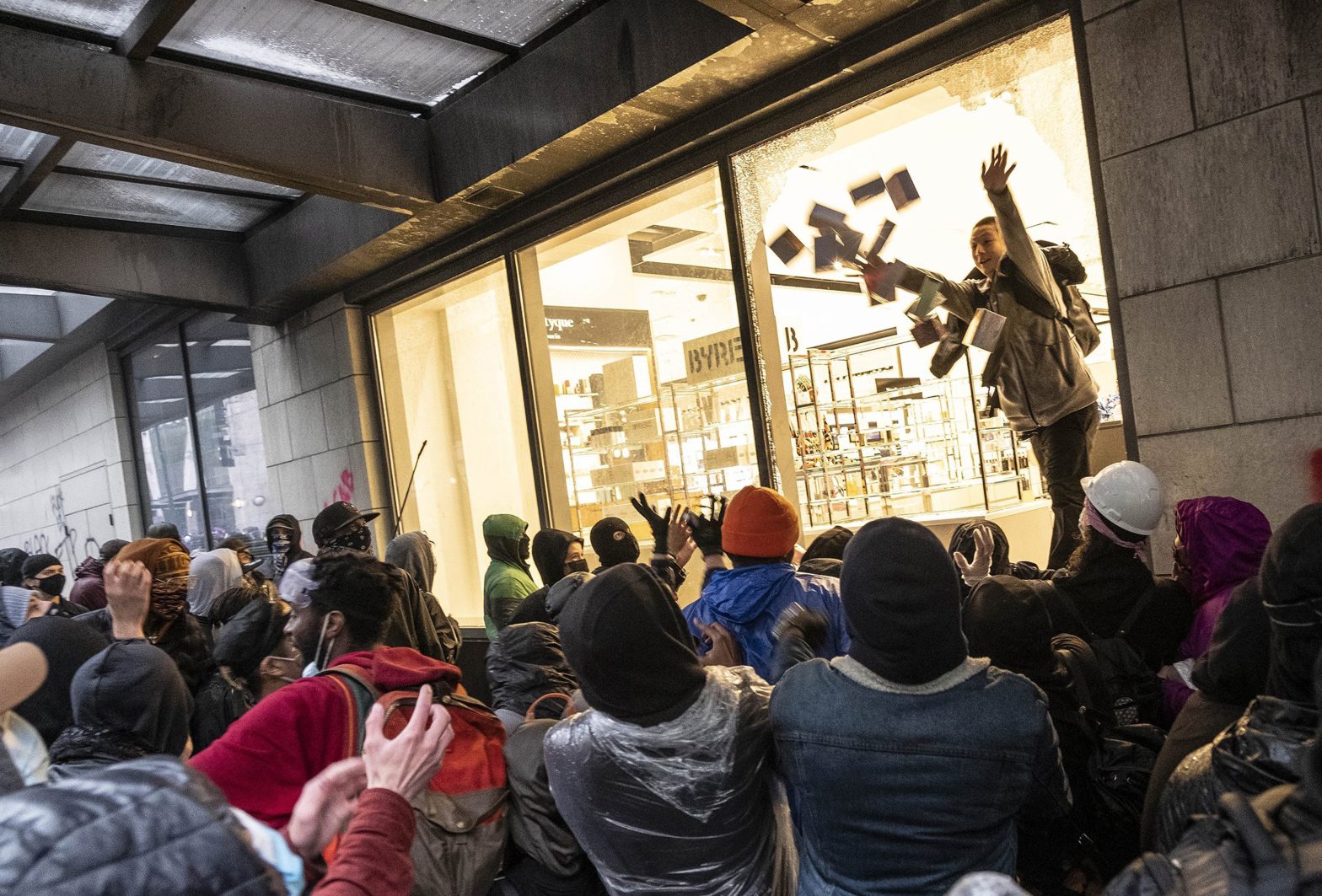The Social Covenant has Shattered
COMMENTARY

Why would they do this?
That question rises inevitably from a new wave of so-called flash-mob robberies, thieves by the dozens invading retail stores to simply take what they want. It’s happened in California, Illinois, Minnesota and Maryland. Retailers ranging from Nordstrom to 7-Eleven have been hit.
For some, the search for answers will be an invitation to uncork pet theories about poverty, permissiveness or punishment. But none of those things is unique to this era.
Think about it: This model for robbery has always been available to enterprising thieves. It’s simple math. What can one or two security guards do if 60 people decide to just walk in and loot the place? Granted, advances in communications technology make that easier to organize now than it once would have been, but still, a crime wave like this theoretically could have happened in 1985 or 2002. It makes sense to wonder why it didn’t. What is it about this particular era that has inspired this particular trend?
Here, then, is another pet theory: The social covenant has shattered.
Meaning the thousand unspoken understandings by which a society functions, the agreements to which we all sign on without a word being spoken. Some are encoded in law, others just encoded in us. Either way, they are rules — “norms” might be a better word — people usually obey even when they could get away without doing so.
You don’t stand facing the back wall of an elevator. In heavy traffic, you take turns merging. You stop at the red light even when the street is deserted. And, oh yes, you don’t join a mob to ransack a store.
While there is almost certainly some hardcore criminality leading this crime wave, one suspects that many of its foot soldiers are people with little in the way of serious police records. How much do you want to bet most of them will turn out to be ordinary, workaday folk who got the word there was free stuff to be had, and all you had to do was take it, like some giddy holiday from social norms?
Where would they have gotten the idea such a holiday was even possible? Surely the opportunistic looting that marred last year’s largely peaceful protests for racial justice helped influence them. But that’s hardly the only — or, arguably, even the most corrosive — transgression of social norms we’ve seen in recent years.
To the contrary, we’ve seen police and other authority figures exempt themselves from mask and vaccine mandates — and dare mayors and governors to do anything about it. We’ve seen ex-public officials thumb their noses at congressional subpoenas. We’ve seen a seditionist mob breach the U.S. Capitol and be lionized for it by certain members of Congress and the media. And we’ve seen a president who delighted in shattering norms, refusing to provide his tax returns, flouting the emoluments clause of the Constitution, openly politicking on government property . . . the list goes on. And on.
Worst of all, we’ve seen little in the way of accountability for any of it. So the question isn’t how ordinary people could have gotten the idea a holiday from social norms was possible, but how could they have not? Everywhere you look, someone else is seceding from the covenants that make it possible for civil society to function. Which makes these smash-and-grab robberies seem less a mystery and more just another troubling reflection of our times.
Why would people do this?
Heck, why would they not?
(Leonard Pitts Jr. is a columnist for the Miami Herald, 3511 NW 91st Ave., Miami, Fla., 33172. Readers may contact him via e-mail at [email protected].)
©2021 Miami Herald. Distributed by Tribune Content Agency, LLC.























